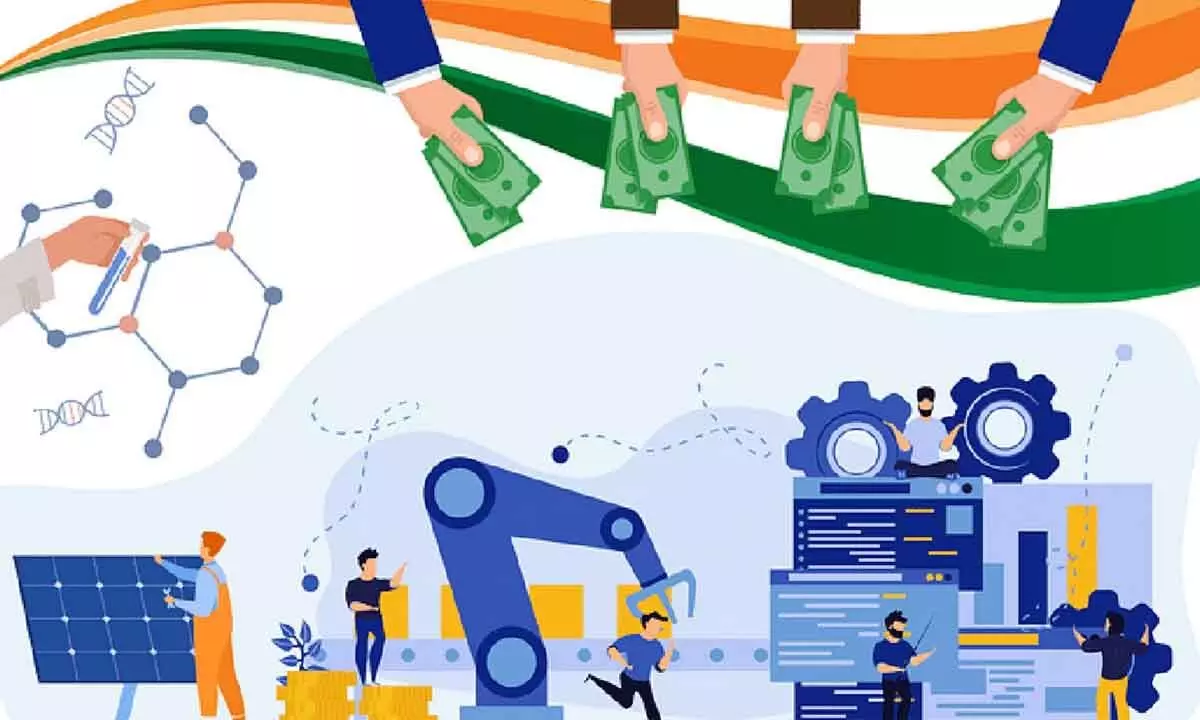Govt revising PLI scheme for pharma, textiles, drones

Move aims at boosting investment and output
Production Boost
♦ Govt notified PLI scheme for 14 sectors
♦ These schemes are at various stages of implementation
♦ The govt expected to disburse Rs13,000 cr to eligible firms
New Delhi: The government may soon tweak the production-linked incentive (PLI) scheme for pharmaceuticals, drones and textiles sectors to encourage investment and boost manufacturing, an official said.
These sectors have been identified after inter-ministerial consultations on the performance of the scheme for various products. The official also said that disbursement of production-linked incentives for white goods (AC and LED lights) would start this month and that would push the amount of disbursement, which was only Rs2,900 crore till March 2023. The scheme was announced in 2021 for 14 sectors such as telecommunications, white goods, textiles, manufacturing of medical devices, automobiles, speciality steel, food products, high-efficiency solar PV modules, advanced chemistry cell battery, drones and pharma with an outlay of Rs1.97 lakh crore.
“We have identified the sectors. We are going to send the combined note to seek approval of the Union Cabinet. The changes include extending some time (for pharma sector) and adding some additional products in some sectors. In textiles, we are expanding the definition of certain other products in the technical textiles segment; in drones, we are increasing the amount,” the government official, who did not wish to be named said.
The total amount allocated for the PLI scheme for drones and drone components is Rs120 crore spread over three financial years. A senior official of the commerce and industry ministry had earlier stated that some course corrections or tweaking were needed in PLI schemes that were not doing well. PLI schemes for sectors which are not picking up well include high-efficiency solar PV modules, advanced chemistry cell (ACC) batteries, textile products and speciality steel. On the other hand, the scheme is doing well in sectors such as electronics, pharma, medical devices, telecom, food processing, and white goods.
The government is trying to sort out issues such as timely processing of claims, visa-related matters where vendors require Chinese professionals’ expertise, and delay in getting environmental clearances that have been raised by certain stakeholders of PLI schemes.
The purpose of the scheme is to attract investments in key sectors and cutting-edge technology; ensure efficiency and bring economies of size and scale in the manufacturing sector; and make Indian companies and manufacturers globally competitive.








